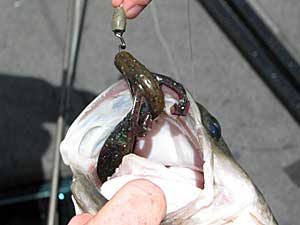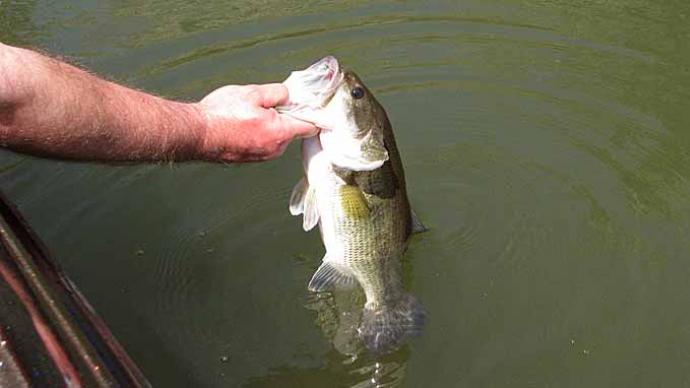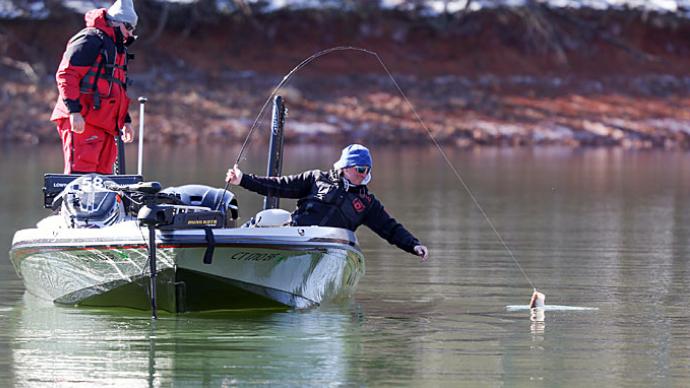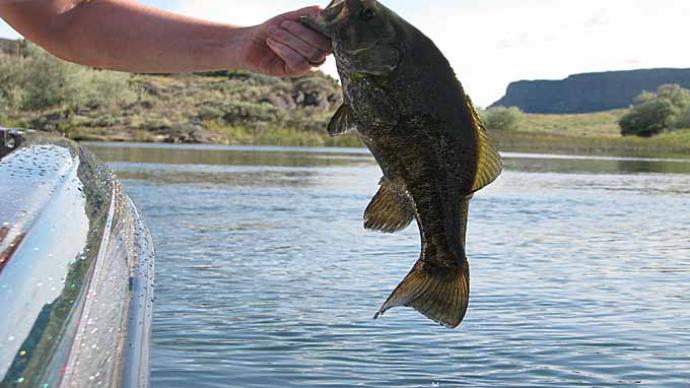
When you enter a tournament at this time of the year you'll face constantly changing conditions. But, by and large, these will be factors you can use to your advantage.
Bass will be coming out of their summer feeding slump. They will be very actively feeding and the plus side is that they'll be making a move toward shallow water.
If your tournament is on a lake that you have fished in the spring, simply use those same spring locations as your starting point. If you will be competing on a new lake, you should still try springtime areas and tactics.
During the fall I'll look at the lake as if it were March, but with one exception. I'll find flats, like during the spawn, as long as there is a definite creek channel winding through the area. One reason for this is that most lakes are usually low in the fall. The other, but main, reason is that shad will usually be migrating up the creeks and, of course, the bass won't be far behind.
In the fall, passing cold fronts will usually have a positive effect on bass. Cold fronts mean dropping temperatures and I always look forward to a tournament that follows a front.
With fall fronts you will experience less rain and run-off from them as we normally have with heavy spring showers that accompany fronts at that time of the year.
For fall tournaments you also need to approach lure choices differently. First and foremost think big baits. All of the forage base, especially the fry that were once so small in the spring have had all summer to grow so the baitfish are larger. Unless I'm facing a real tough bite my first choice will most likely be a larger lure at this time of the year.
Another thing I like about fall is that you can use a wide variety of types of lures and still have a successful tournament or day on the lake. From the top to the bottom, and everything in between, almost anything will catch fish in the fall. But not everything will work on every lake.
You must learn to judge the water you're fishing. For example, if you're on a lake like Texoma during the fall the lower end is notorious for sandy drops that hold a lot of bass. But this water is exceptionally clear and a topwater or soft jerkbait like a Texas Critter will usually out produce other methods of fishing.
At a lake like Richland-Chambers you can find definite differences in the fall. This lake is different from any other lake I have fished in Texas during this time of year.
I've won a lot of tournaments on Richland-Chambers, usually fishing deep structure with a Carolina rig. But during the Pro Team championship my partner Roy Carlson and I caught only one bass, in two days, of the 10 fish we weighed in on a Carolina rig. We ended up with over 45 pounds, but most came on a Texas- rigged worm or a Norman DD 22 crankbait.
During that tournament I fished a Carolina rig some of the time, but the fish wouldn't take it. Since that tournament I have found that I still can't get a bite on a Carolina rig at Richland-Chambers during the fall.
That's what I mean by reading the water because not everything will work on your favorite lake.
Experiment during practice fishing days because the bass will act different in the fall and you don't want to wait until tournament day to be experimenting. When you approach your fall tournaments, learn to use the changing conditions and other factors to your advantage. Don't let a change in the weather psychologically change your attitude about the fishing in a negative way because very often that change can make for a winning day.
I hope to see everyone on the lake. Good luck and God Bless.
Bill Wilcox is sponsored by Ranger Boats, Yamaha Outboards, MCMC, BG Products, Pro Rule, Johnson Fiberglass, Brown's Automotive, Continental Batteries, Kistler Rods, Swamp Hog Lures, Strike King Lures, and Fun-n-Sun Sports Center.




